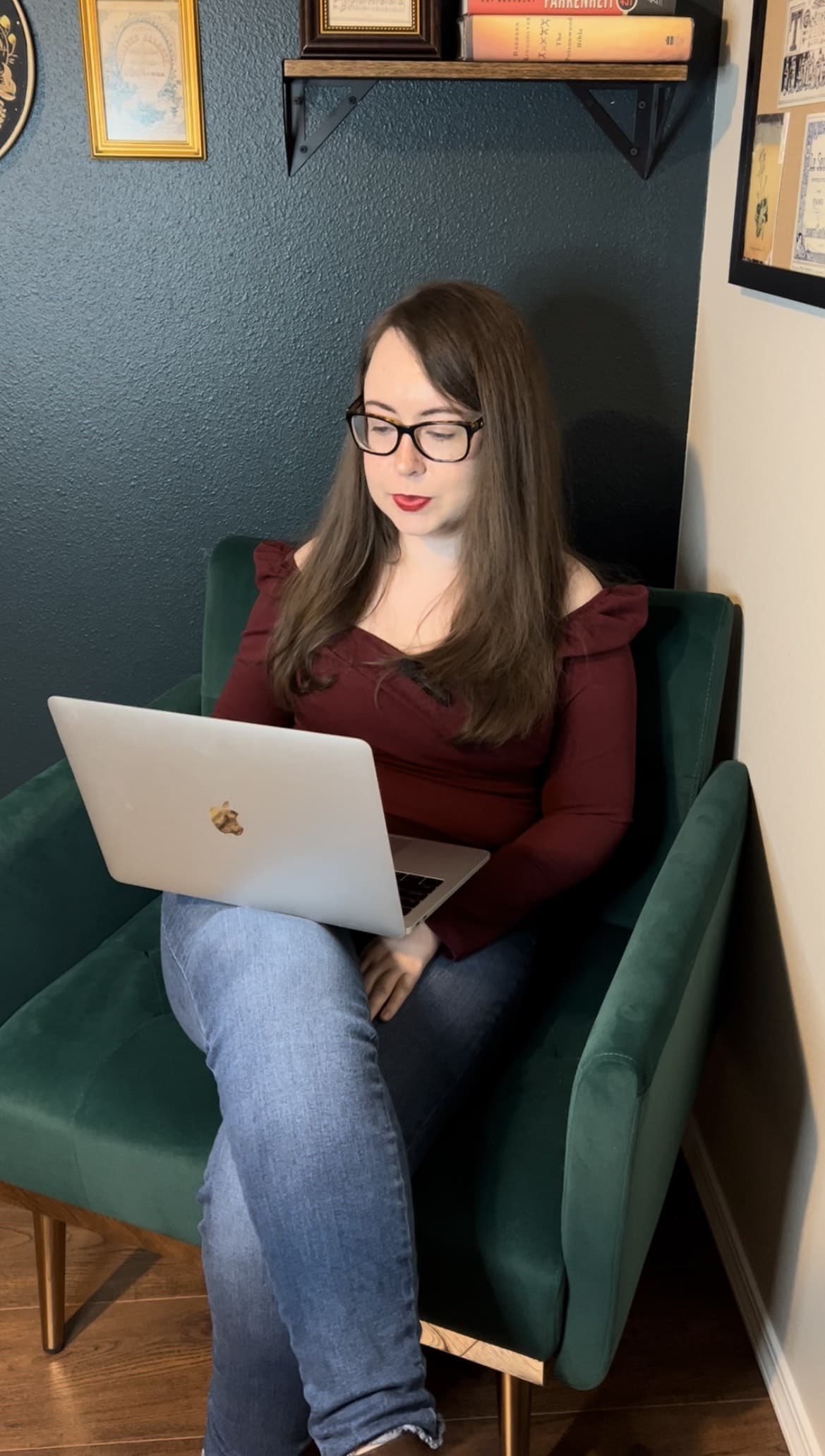Advertisement
Who's really behind your favorite celebrity memoir? It's probably not the name on the cover

Becca Grischow’s books have appeared more than a dozen times on the New York Times bestseller list. But you won’t find her name on any of them.
As a professional ghostwriter, Grischow writes mainly non-fiction memoirs for high-profile celebrity clients. That’s the norm for celebrity memoirs: to have a ghostwriter pen some — if not most — of the story. Using her years of expertise, Grischow estimates that a vast majority of all celebrity memoirs are ghostwritten.
“If that celebrity is active and doing things in the world right now, they do not have time to write a book,” Grischow says.
Celebrity memoirs are revered as a peek behind the curtain into a famous person’s private life. In his memoir “Will,” Will Smith reveals that after being cheated on, he developed shopping and sex addictions. Drew Barrymore admits to smoking marijuana for the first time at only age 10 in “Little Girl Lost.”
The defining characteristic of a memoir is the author telling their own story, revealing shocking truths unbeknownst to the public before the book’s publication.
How can a ghostwriter tell someone else's story?
“The biggest part of really being able to embody someone's voice is just spending enough time with that voice,” Grischow says. “Anyone, celebrity or not, needs to approach their ghostwriting experience with a good amount of vulnerability … to be completely honest about their emotions and about the details of their experience. Not everyone can do that.”
Grischow says reading writing samples such as articles, blog posts, journal entries or emails make it easier to write in someone’s voice.
“It's also a game that I used to play growing up,” Grischow says. “Whenever there was a band with a popular song, I would see if I could write a song that sounded like it was written by that band. I'm a very good mimic.”

As an outsider to the subject’s personal narrative, ghostwriters offer an objective point of view. They listen to the story, pick out the threads that weave it together and package it as a cohesive plot.
“It's a wild thing to watch someone edit your own life,” Grischow says. “People's lives and stories are very sensitive, so it's important to keep that balance of really immersing yourself in it and also having a more objective view.”
Claire Parker and Ashley Hamilton are the online authorities on celebrity memoirs. The pair of comedians estimates they each read nearly 75 memoirs per year to discuss on their podcast, “Celebrity Memoir Book Club.”
By their own admission, many of these books are not “good” in the traditional literary sense. They categorize celebrity books into two categories: A book that allows the celebrity to tell their own version of their highly-public life, or a book that exists essentially as a piece of merchandise, another way to make money off the marketability of their name. The larger a celebrity’s network, the more publishers will pay for their manuscript.
Advertisement
“Even if it's not done well, you can tell a lot about a person based on what they want you to think about them,” Parker says. “The stories that people choose to tell them about themselves — whether or not they tell them honestly — can be just as telling as the darkest truth of their soul.”
Sometimes, members of Parker and Hamilton's community use the fact that a ghostwriter worked on a project as a slight toward the celebrity, insinuating that subject had no input on their own memoir or claiming the profession is unethical.
“I think that there's almost a sense of entitlement with creative work,” Haylee Justine, a ghostwriter who has also worked on high-profile memoirs, says. “I think it's almost unethical how we think we are owed a person behind a book.”
But Parker and Hamilton say that a good — or at least entertaining — celebrity memoir exudes vulnerability and personal growth. And that’s typically the mark of a ghostwriter who’s highly experienced in crafting a compelling story.
How does one enter a profession so vast yet so secretive?
Justine started her writing career self-publishing her own books but grew discouraged at the slow-moving business.
When Justine found out about the elusive ghostwriting field through her connections in indie publishing about five years ago, she realized ghostwriters typically raked in much higher salaries than writers publishing their own manuscripts. A memoir project for a high-profile client takes roughly six months to complete and pays between $75,000 and $100,000, according to the New York Post.

“I've got so many books under my belt,” Justine says. “I thought, ‘I'm going to try to dedicate some time to getting in with literary agents and higher-level agencies and see how that goes for me.’”
That impressive salary comes with a tradeoff: Non-disclosure agreements, extreme discretion even around other ghostwriters and the inability to claim any nameless work as one’s own.
When Grischow started out, she found these factors strikingly isolating as someone who entered the writing profession to connect with other people. Grischow has been a writer nearly her whole life, or at least since age 6, and double-majored in communications and creative writing at Valparaiso University. She started ghostwriting straight out of college, scoring a fiction writing gig from a fellow writer. That fiction author became Grischow’s first regular client.
“I'm a Leo. I do like attention,” Grischow says. “So it is difficult to watch those books be praised and to know that no one will ever know I was the one who worked on it. But on the other side of that coin is that not every project I'm involved in is a project that I want to be associated with.”
But for Justine, the anonymity appealed to her. When she worked in self-publishing, she always used pseudonyms.
“I never write under my own name. Never,” Justine says. “A lot of people don't realize so many of us are in this career as a very purposeful decision because it's extremely lucrative and because we like the privacy.”
Time and time again, sales show that the name on the cover is the one that matters in turning a profit. Name-recognition marketing isn’t going anywhere, and the immense success of Jennette McCurdy’s recent memoir “I’m Glad My Mom Died” evidenced that this genre still draws the masses. Publisher Simon & Schuster maintains that McCurdy wrote the book herself, without the help of a ghostwriter.
In the age of social media, celebrities feel more accessible than ever — but bestseller lists prove this additional insight hasn’t quenched fans’ and readers’ thirst for tell-all memoirs.
“[Celebrities are] going to have to expose more things about themselves,” says Rachel Deahl, news director at Publishers Weekly. “Especially now in the age of social media, when it's somebody you know a lot about already, they’re going to have to offer something else.”
If someone has written numerous published books but doesn’t turn up in a Google search of those titles, how can they score work?
Word of mouth, mainly. And personal writing samples for interested clients to let their writing speak for itself.
The career is often thankless and taxing, time-consuming and pigeonholed around a client’s wishes. But writers who put in the time to thrive on this path like Grischow and Justine wouldn’t have it any other way. They see the work as a way to connect with their subjects, bring powerful and unheard stories to light in engaging ways, and flex their analytical writing skills to piece together a personal narrative that is not their own.
“I always joke that ghostwriting is often a little bit of therapy. We're talking about very personal topics, and you need to make sure you're doing it in a way that your clients don't feel judgment,” Justine says. “I think ghostwriters, in general, are some of the most skilled writers.”
This article was originally published on September 21, 2022.
This segment aired on November 1, 2022. The audio for this segment is not available.
